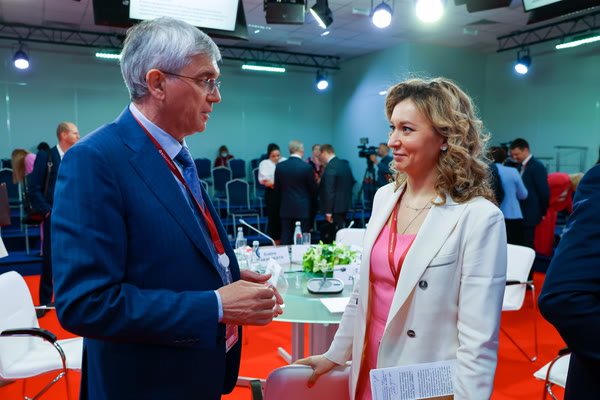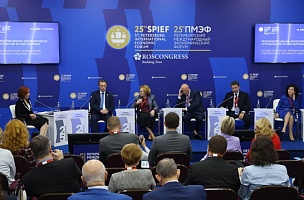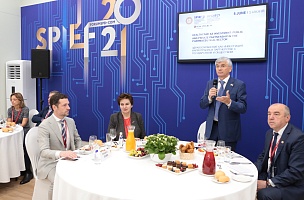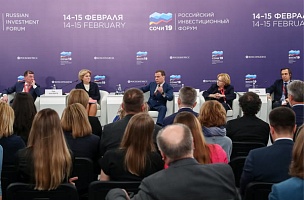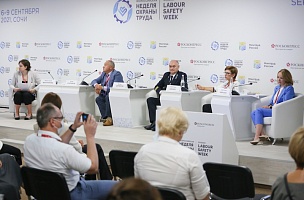Key conclusions
Russia does not intend to substitute 100% of all medical products. Some of them can be purchased from partner countries
“We have a list of essential [medications, – Ed.] made up of 809 items. The Russian pharmaceutical industry is capable of producing about 80% of them. It is nearly 650 international unpatented medications. <…> Do we need to strive for replacing 100% of components? Probably, not a single country in the world is fully independent in everything. We can do some things on our own and other things we will do together with the Eurasian Economic Union countries or with our strategic partners,” Victor Fisenko, First Deputy Minister of Health of the Russian Federation.
“Everyone perceives import substitution as catching up. I think we found a term that will be widely used, if our colleagues from the government would not mind. It is import independence. I think this term describes what we want to achieve better. However, can we [substitute, – Ed.] all the medications? No, not a single country in the world is capable of that. But are we isolated? No,” Aleksandr Petrov, Chairman of the Subcommittee on Medicines, Development of the Pharmaceutical and Medical Industry, Committee of the State Duma of the Federal Assembly of the Russian Federation on Health Protection.
“Over the past two years, the share of imported medications our region [the Republic of Bashkortostan, – Ed.] purchased reached 55%. Our objective is to take it down to 50%. It means that now we cannot stop importing yet. As for medical equipment, in 2020 this share was 76%, with 64% in 2021. This year, our projected number is 57%. This is the level we have been able to reach so far,” Andrei Nazarov, Prime Minister of the Government of the Republic of Bashkortostan.
PROBLEMS
We need to raise people’s level of trust in domestically produced medications
“The number one issue is people’s trust in domestically produced medications and medications imported from partner countries. Trust is a fundamental thing,” Aleksandr Petrov, Chairman of the Subcommittee on Medicines, Development of the Pharmaceutical and Medical Industry, Committee of the State Duma of the Federal Assembly of the Russian Federation on Health Protection.
“The brands like ‘Made in the Eurasian Economic Union’ and ‘Made in Russia’ must get people’s trust. This is our common objective that Russian manufacturers share with us. They should launch a campaign to raise the trust level in domestically produced medications. <…> Patients do not just buy whatever they want – it is doctors who prescribe things,” Victor Fisenko, First Deputy Minister of Health of the Russian Federation.
Proper control over the regions’ need in essential medications is required
“We need to start with numbers. Medications are pure math – the number of patients that require a certain medication. <…> We are busy with our 2023 budget and are adjusting the 2024–2025 budget. The Ministry of Finance says they will allocate RUB 10 bln [for the prevention of cardiovascular diseases, – Ed.]. It is a lot or not? No one can say,” Aleksandr Petrov, Chairman of the Subcommittee on Medicines, Development of the Pharmaceutical and Medical Industry, Committee of the State Duma of the Federal Assembly of the Russian Federation on Health Protection.
“As of early 2020, our country had 373 tele-irradiation units, including 170 gamma-ray teletherapy units and 210 linear accelerators. <…> Today, only 60% of our accelerator fleet is younger than 5 years old. The life cycle of those 65% gamma-ray teletherapy units is over 10 years, which means they will require maintenance. Maintenance means spare parts you need to wait for. We ask the regions to have two of such units, because one would need to go into a maintenance shutdown for an average of 50 days. Naturally, patients who undergo radiation treatment should continue getting it. It cannot be interrupted,” Andrey Kaprin, General Director, Federal State Budgetary Institution National Medical Research Radiological Centre of the Ministry of Health of the Russian Federation.
Some of the medical equipment cannot go into mass production due to low demand
“Organizing a full radiopharmaceutical production cycle – from developing the raw materials to go-to-market – is problematic in our country. Now we are making the so-called generator, which [specialists, – Ed.] could replicate and then send the pharmaceuticals to remote areas of the country. We are ready, but we are not sure the production is. This is where we need support,” Andrey Kaprin, General Director, Federal State Budgetary Institution National Medical Research Radiological Centre of the Ministry of Health of the Russian Federation.
“We know how to develop things, come up with them, or even register them. It is not going to be fast, but we can do it. However, mass production or go-to-market with piece-goods would be very difficult. This is where we need a balanced government policy to support our import independence, or it is not going to work,” Igor Obrubov, General Director, Rusatom Healthcare.
Application of Russian innovations is halted by lengthy licensing procedures
“Our company <…> has developed a blood clotting analyzer. In December, we sent the paperwork to Federal Service for Surveillance in Healthcare. They have not replied to this day. It has been six months. Does it seem like the right approach under present circumstances? The Government of Bashkortostan has the following principle: if it is a crisis response document, it must be processed within four hours. Let’s have all documents approved within 30 days, for example,” Andrei Nazarov, Prime Minister of the Government of the Republic of Bashkortostan.
SOLUTIONS
Licensing simplification and preferences for producers can help develop Russia’s pharmaceutical industry
“We took this path [of simplifying clinical trials and medication licensing, – Ed.] in 2020–2021, during the pandemic. We have proved that we can amend the legislation fast. <…> All procedures related to simplification of clinical trials and licensing will be used under the present circumstances as well,” Victor Fisenko, First Deputy Minister of Health of the Russian Federation.
“There is a number of areas that need a change of priorities on the federal level. First of all, the construction industry enjoys VAT return after construction is completed. We propose the same principle for medicine – VAT return for medical facility construction and medical R&D. Many countries use it to reduce production cost, which eventually makes the product more competitive,” Andrei Nazarov, Prime Minister of the Government of the Republic of Bashkortostan.
Expansion of the pharmaceutical industry should become a new growth point for Russian regions
“We are creating a network of radionuclide therapy centres together with Russian regions. Those centres will use radiopharmaceuticals for treating patients. Our experience with Bashkiria has been great. By the end of this week, we are to complete the tender procedures for selecting a contractor. This contractor is supposed to build such a centre in Bashkiria – it is set to be commissioned next year. Yesterday, we signed a similar agreement with Stavropol Territory. Lipetsk is implementing the same kind of project. This is not the end. Two more regions are supposed to join this programme before the end of the year,” Igor Obrubov, General Director, Rusatom Healthcare.
“Last year, our region’s pharmaceutical industry grew almost 2.5 times. Of course, it is a growth point for us, and we understand that we need to support it,” Andrei Nazarov, Prime Minister of the Government of the Republic of Bashkortostan.
For more information, visit the Roscongress Foundation’s Information and Analytical System at roscongress.org.


